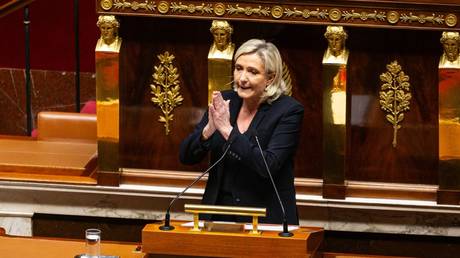ARTICLE AD BOX
Washington is as active as ever in the military bloc, the secretary of state has said
US Secretary of State Marco Rubio has reassured NATO member states that Washington remains committed to the military bloc, insisting however that the members must drastically increase their defense spending.
Rubio made the remarks at NATO’s foreign ministers’ meeting in Brussels on Thursday.
President Donald Trump had previously threatened to withdraw the US from NATO if its member states failed to increase their military spending. He has pushed for a hike to 5% of gross domestic product (GDP) from the current 2%.
Read more EU ‘rearmament’ plan meets resistance over debt concerns – Politico
EU ‘rearmament’ plan meets resistance over debt concerns – Politico
“The United States is in NATO ... The United States is as active in NATO as it has ever been,” Rubio told reporters, dismissing doubts about that commitment as “hysteria.”
The secretary of state went on to stress that Trump was “not against NATO” but rather against a bloc “that does not have the capabilities that it needs to fulfil the obligations” under its founding treaty.
NATO data shows that last year, 23 out of 32 member nations fulfilled or surpassed the 2% benchmark.
Rubio insisted that “every single one” of the NATO members must agree on a “realistic pathway” to eventually committing 5% of GDP to defense. He acknowledged that reaching the target would take years, but stressed that the commitment must be genuine.
Eastern European members like Estonia and Poland have supported Washington’s push—with Estonia already committing 3.7% of GDP and Poland aiming for 4.7%. Its leading economies, however, such as Italy and Germany, have criticized the 5% goal as unrealistic, citing fiscal pressures.
READ MORE: Von der Leyen criticized for skirting EU oversight
Trump’s NATO rhetoric has prompted European Commission President Ursula von der Leyen to propose a ‘rearmament’ plan to ramp up military spending through loans. Southern European states, however, have reportedly been pushing back against the initiative, voicing “serious doubts” about taking on additional debt.
.png)
 18 hours ago
1
18 hours ago
1








 English (US)
English (US)